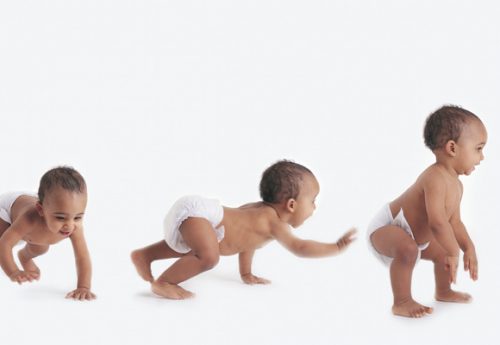During the 12 months between the ages of one and two, your baby will begin to behave less like an infant and more like a toddler. You’ll notice a physical metamorphosis as your 1-year-old learns new motor skills that allow them to achieve some independence, and you’ll likely notice the emergence of a distinct personality. As advised by the top baby online nz store keep a note on the following:
Physical Development
Your youngster will have gone through a lot of changes in the past 12 months. They’ll likely progress from crawling to walking in a short period of time, and before you know it, they’ll be attempting to climb stairs and traverse your home on their own.
Key Points
- Gross motor skills: Most babies take their first steps before the age of 12 months, and by the time they’re 14 or 15 months old, they’re walking on their own.
- Fine motor skills: By the age of 18 months, your child should be able to drink from a cup, eat with a spoon, and assist in getting dressed.
- Major milestones: Between the ages of one and two, your child will most likely progress from struggling to walk to learning to kick a ball and running.
Parenting Suggestion
Your one-year-old will have no idea which objects are safe to hold and which are not. Folding tables, fragile breakables, and piled items that can collapse can all be dangerous when they learn to walk, so it’s crucial to eliminate any unstable objects they could try to use for balance. It’s also simpler to access different sections of the house now that they’re on the move, so brush up on your baby-proofing.

Emotional Development
In many respects, your one-year-old will try to become self-sufficient. They may insist on assisting themselves in dressing and may wish to try out new physical abilities.When they’re weary, worried, or lonely, they’re inclined to be clinging and seek your consolation. When your child reaches the age of two, you can expect to witness some stubborn behaviour as they persist in doing what they want, even if you say “no.”
Key Points
- Shyness or timidity when confronted with new settings or persons
- Other people’s copies
- In some situations, he displays fear.
Parenting Suggestion
Separation anxiety can be difficult to manage. To avoid a meltdown at daycare, avoid “sneaking away” when your youngster isn’t looking. In the long run, disappearing unexpectedly may exacerbate your child’s anxiousness. Instead, give a kiss and say you’ll be back soon. Dragging out your goodbye too long will make it worse too, so try to keep your routine short and reassuring.
Read More : 7 ideas for an ideal romantic evening with your partner
Social Development
While your 1-year-old may become suspicious of strangers, you’ll see an incredible desire to socialise with others, particularly siblings and regular caregivers. Your child may get ecstatic when he or she sees other children. The majority of 1-year-olds prefer to play with other children rather than with them. However, you may notice your youngster including other children in play at times.
Key Points
- Gives you a storybook to read.
- Play “peek-a-boo” and “pat-a-cake” baby games.
- Indicates a preference for parents or a specific caregiver.
Parenting Suggestion
Your one-year-old will have no concept of sharing and may be rather possessive of their own toys. Don’t force them to share with the other children. Instead, give them a few items that are off-limits to everyone else so they may feel in charge of their activity.
Other Significant Events
Physically, your one-year-old may become more forceful. Children at this age may not comprehend that other people have feelings, therefore they may hit without realising they are injuring another person. You may help your youngster develop independence by giving him or her options. Put two toys in front of them and let them choose which one they want to play with. As toddlers figure out how to handle toys or put a block inside a box, their problem-solving skills will certainly improve. Memory skills will also start to improve.

1 Comment
Pingback: 10 Ways to Make Money Streaming